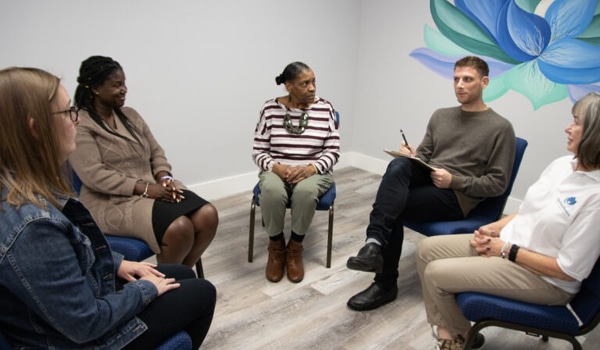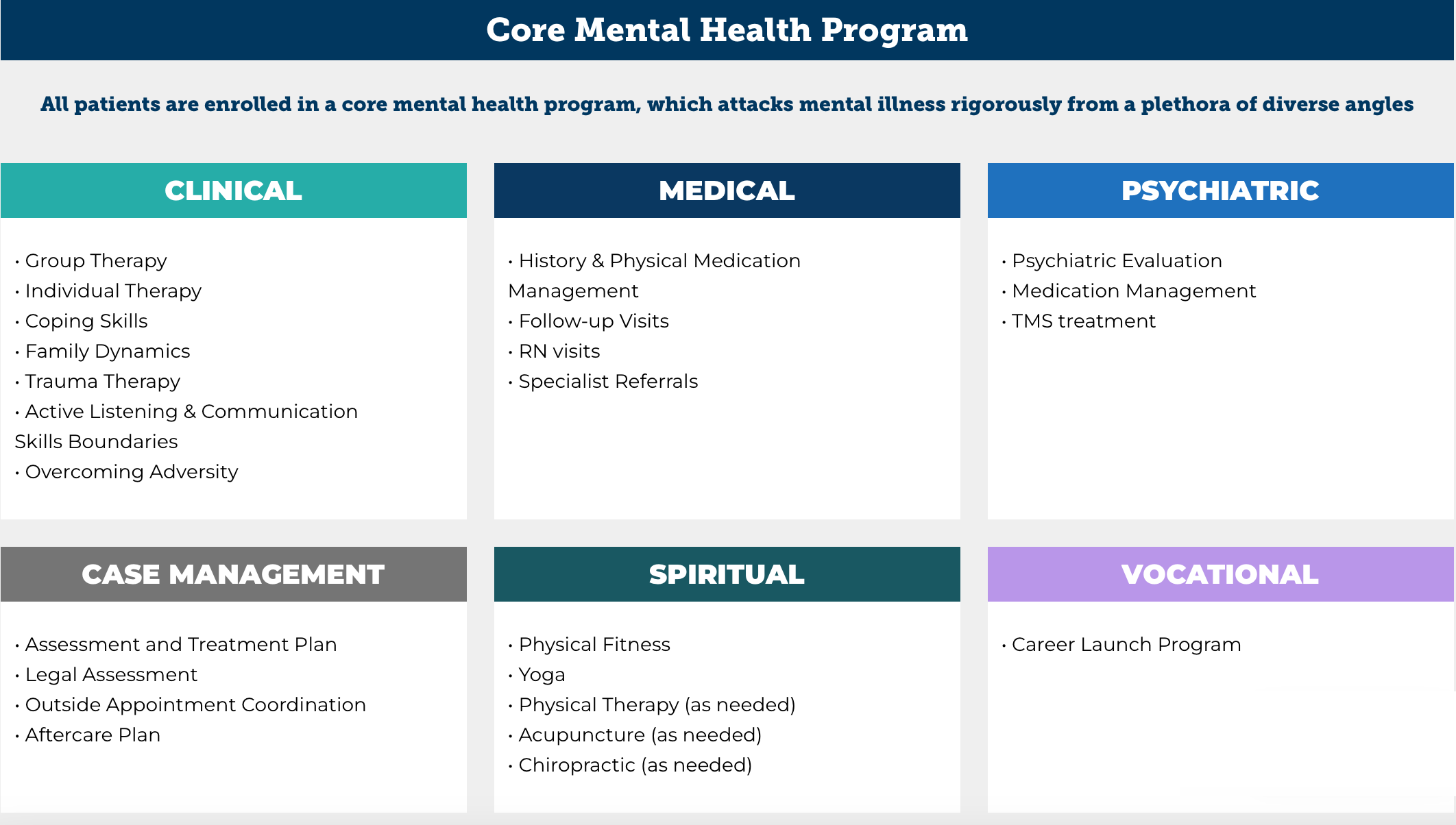What is the Intensive Outpatient Program Admissions Process?
The admissions process for an intensive outpatient program (IOP) is meant to guarantee that individuals with mental health and/or substance use concerns are provided with the necessary care and assistance while they are part of the program. While the details of the process may differ from one treatment center to another, below is a general summary of what to expect:
- Initial Contact: The admissions process typically begins with you or a loved one contacting the facility. During this phase, a basic overview of the program’s offerings and an initial assessment of your needs are discussed.
- Assessment and Evaluation: Following initial contact, a comprehensive assessment and evaluation are conducted to gather detailed information about your mental health or addiction issues, treatment history, and any psychiatric comorbidity. This assessment helps determine the appropriate level of care and treatment plan.
- Insurance Verification and Coverage: Admissions coordinators work with you to verify insurance coverage and understand the financial aspects of treatment. They help navigate insurance policies, explain coverage limitations, and discuss potential out-of-pocket costs.
- Treatment Plan Development: A personalized treatment plan is developed in collaboration with you based on the assessment. This plan outlines specific goals, therapies, and interventions customized to address your unique needs and challenges.
- Admissions Coordination: Admissions coordinators guide you through the enrollment process, helping with paperwork, coordinating any necessary referrals, and scheduling and logistical details to ensure a smooth transition into IOP treatment.
- Orientation and Program Introduction: You’ll receive an orientation and program introduction upon admission. This includes an overview of the IOP’s structure, rules, expectations, and an introduction to the treatment team and fellow participants.
- Active Participation in Treatment: Throughout IOP treatment, you’re expected to actively engage by attending therapy sessions, group meetings, and other activities as outlined in your treatment plan. Active participation is crucial for achieving therapeutic goals.
- Progress Monitoring and Adjustments: Progress is closely monitored, and the treatment plan may be adjusted as needed to address evolving needs or challenges. Regular assessments and feedback help ensure the treatment remains effective and aligned with your goals.
What Goes on During a Mental Health IOP in Florida?
Our intensive outpatient program at The Sylvia Brafman Mental Health Center is designed to complement earlier mental health treatment, helping to build upon previous progress. For at least ten hours of therapy per week, you can discuss your real-world experiences and gain new perspectives that enable you to view mental wellness and growth as practical and achievable.
Through our core mental health program, which features clinical, medical, and psychiatric care, we offer case management, career or educational studies, and additional wellness practices. Our Ft. Lauderdale IOP in South Florida also empowers you with the knowledge to manage your condition effectively and advance personal relationships. Our intensive outpatient programs that employ evidence-based treatment approaches have been substantiated as effective in clinical research and literature.
A few components you can expect in our intensive outpatient program include, but are not limited to, the following:
- Group therapy
- Individual therapy
- Family dynamics
- Overcoming obstacles
- Medication management
- Specialist referrals
- Psychiatric evaluation
- Assessment and treatment planning
- Aftercare
- Physical fitness
- Yoga
- Vocational programs











